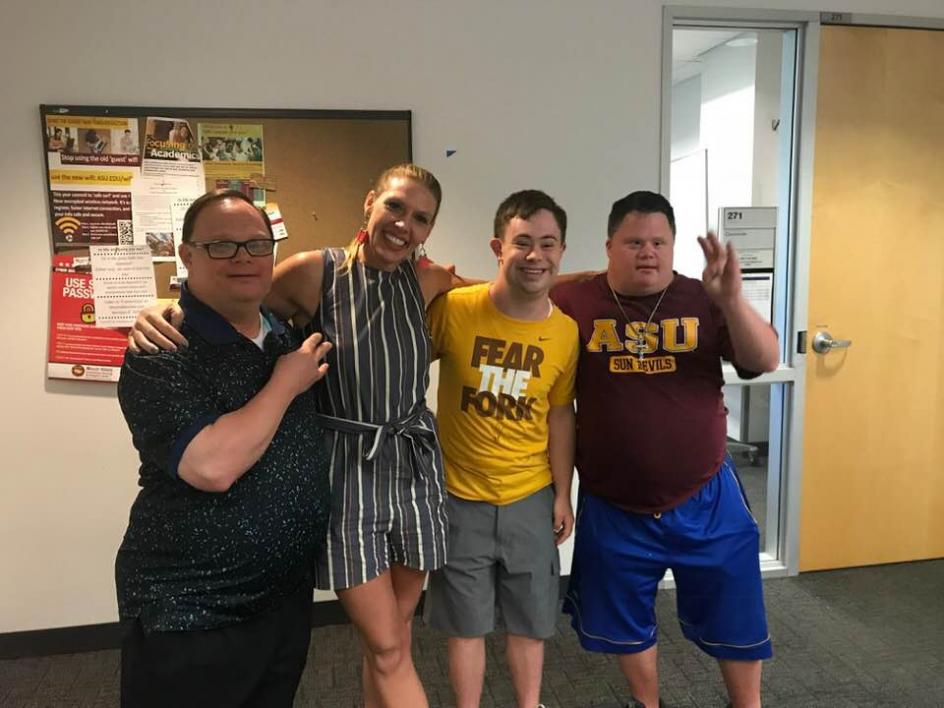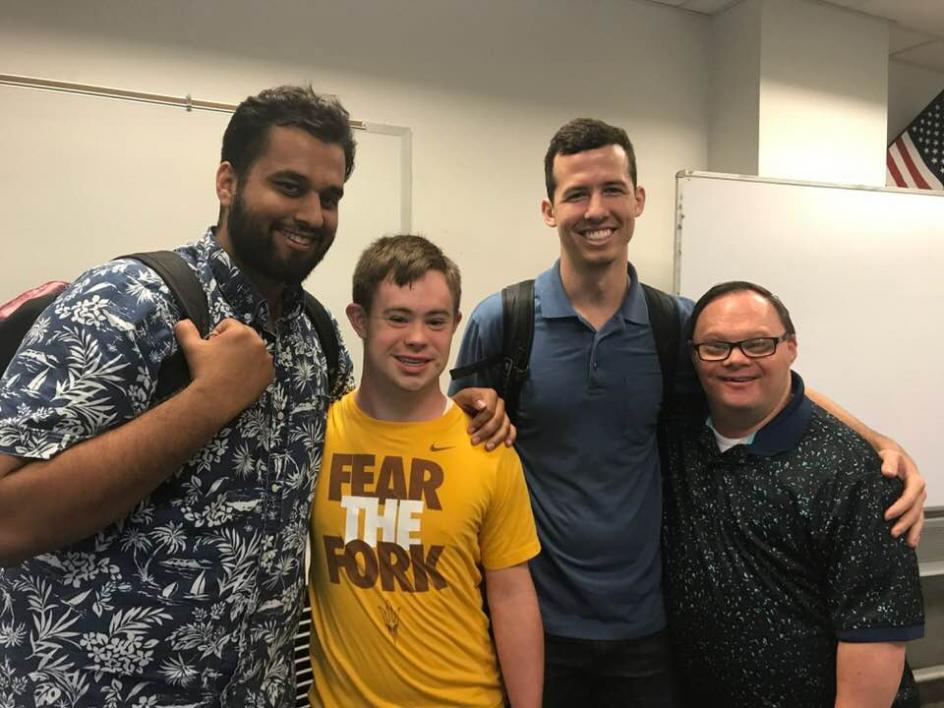Longtime partnership between ASU professor and Arizona’s Down syndrome community is a win-win
Exercise research and local nonprofit group strengthened through mutual goals of health and advocacy
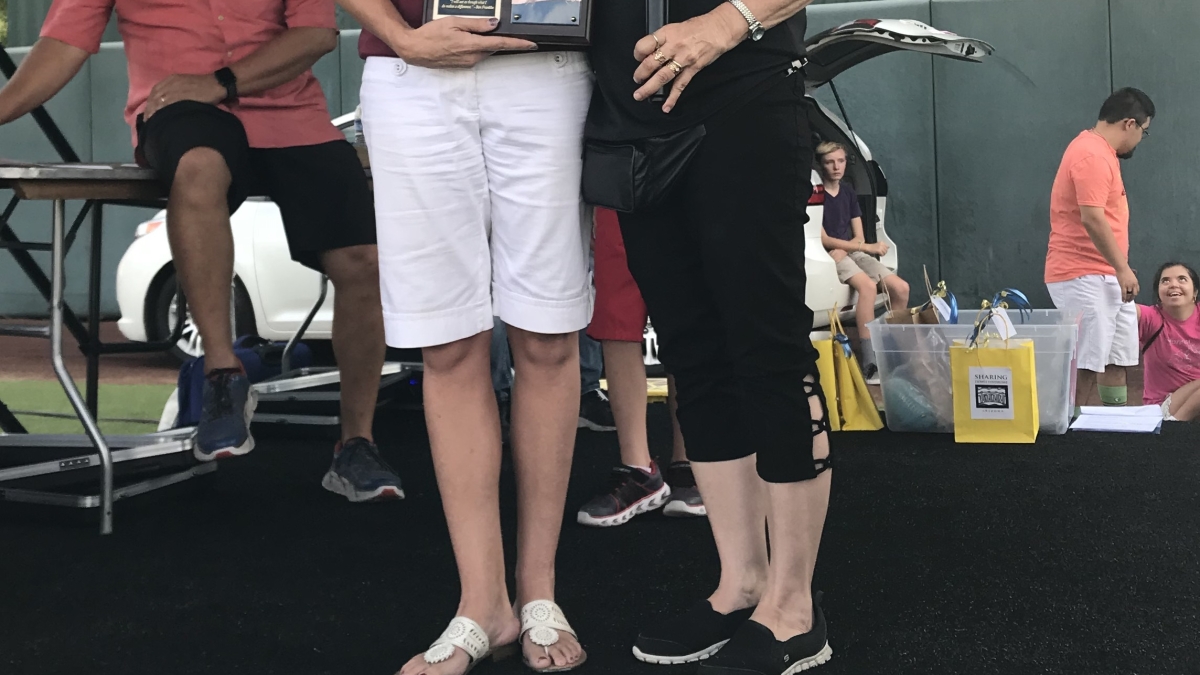
Shannon Ringenbach (left) and Gina Johnson, founder of Sharing Down Syndrome Arizona at SDSA's annual fundraising walk. Ringenbach received SDSA's 2018 Outstanding Educator of the Year award.
Thirty-five years ago, when doctors told Gina Johnson that her critically ill newborn son had Down syndrome, her world came crashing down.
“I was certain God had made a mistake in sending him to me, that out there somewhere was a really nice woman who was supposed to be his mom, but by some mistake he came to me,” Johnson said. “What I didn’t know then was that God sent David to me as my finest teacher.”
Fast forward 15 years to 1998 and Johnson has founded Sharing Down Syndrome Arizona (SDSA), a local nonprofit organization that empowers and supports individuals with Down syndrome and their families through education and outreach. It’s the annual fundraising walk, and a first-year assistant professor from ASU has approached her about setting up a table in the exhibit area. The professor wants to recruit individuals for her very first Arizona State University research project on using exercise to improve the mental and physical health of those with Down syndrome. Johnson reluctantly agrees to let her set up a table at the walk.
The then newly minted assistant professor was Shannon Ringenbach, who today is an associate professor of exercise science and health promotion at ASU’s College of Health Solutions and director of the Sensorimotor Development Research Lab. And that first meeting between Ringenbach and Johnson all those years ago has turned into a two-decade-long informal partnership between SDSA and ASU that continues to pay big dividends for both organizations.
This year, SDSA awarded Ringenbach its prestigious outstanding educator of the year award for her contributions to Arizona’s Down syndrome community. Although she has never taught students with Down syndrome, the SDSA board said Ringenbach’s work has created a bridge between her students and their organization, one that has had a far-reaching and lasting influence.
“Though Shannon does not teach children with disabilities in her classroom, she does something just as important. She teaches the leaders of tomorrow that we must treat all people with dignity and respect,” Johnson said.
Shannon Ringenbach (second from left) poses with members of Sharing Down Syndrome Arizona who were recent guest speakers in her Motor Control in Special Populations class.
Ringenbach’s students are deeply involved with the Down syndrome community. They volunteer at the annual walk where they lead games and staff the booths. Students also attend SDSA’s monthly meetings where they learn about Down syndrome advocacy and interact with the families. Many of them go on to develop ongoing relationships with SDSA families and participate in other events such as Easter egg hunts and holiday parties. For the past 15 years, Johnson has been a guest speaker in Ringenbach’s Motor Control in Special Populations course. This year she brought some of her friends who have Down syndrome to speak to the class — a big hit with the students.
Ringenbach’s passion to help special populations stems from her mom. “My mother was a teacher of ‘slow learners’ in the 1970s, so I think I inherited my compassion and love of helping people who need a little extra help or need to be taught in a different way,” she said. “People with Down syndrome cannot change their disability, so we have to change the way the rest of us talk, teach and support them.”
Ringenbach’s association with SDSA has benefitted ASU and the College of Health Solutions as well. Her research on exercise interventions to improve the health of individuals with Down syndrome receives external funding and has led to more than 50 honors theses, with SDSA members occasionally sitting on her students’ thesis committees. Recently, she submitted a $200,000 grant to the National Institute on Disability, Independent Living and Rehabilitation Research, naming Johnson as a consultant, and she has used Johnson’s resources over the last 20 years to recruit participants for research.
“When I am at national and international conferences, people ask me how I recruited so many participants, and I tell them that it takes many years to build up a reputation for conducting good science and also caring about the people you are studying,” Ringenbach said.
The most visible result of this long-standing partnership is ASU’s Exercise Program for Adults with Down Syndrome (ExDS), created by Clinical Assistant Professor Simon Holzapfel, one of Ringenbach’s former PhD students. Working with her on research about exercise’s effect on individuals with Down syndrome kindled Holzapfel’s passion to use exercise interventions to help people with special needs. In 2017 he created ExDS, a class for his students and a free program for the local Down syndrome community at the Downtown Phoenix YMCA to improve their health through exercise.
“If it weren’t for Ringenbach, I likely would not have worked with this community,” Holzapfel said. “Her work as an educator has a multiplicative effect because we, her PhD students, in turn, shape the next generation of students into becoming more aware and inclusive professionals.”
Ringenbach's students Kazi Syed (left) and Bradley Tanner (second from right) with some of the members of SDSA who spoke to their class recently.
More Health and medicine
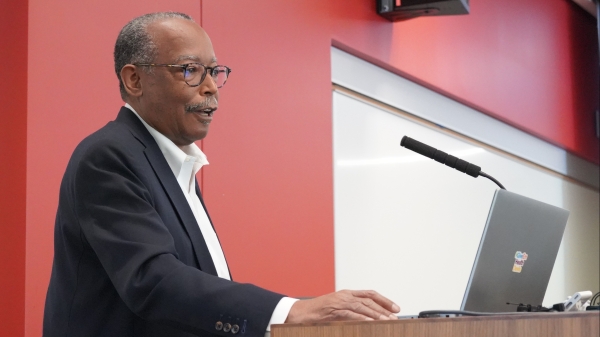
College of Health Solutions hosts visit from leading expert in genomic research
Some fortunate Arizona State University faculty, staff and students were able to gain valuable insights and perspective during a…
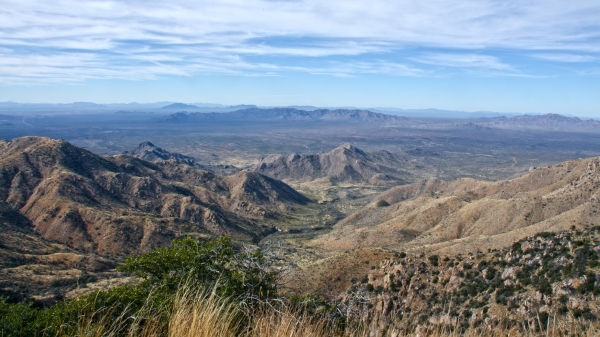
Indigenous ASU research team recommends assistance for tribal members still reeling from COVID-19’s effects
When Matt Ignacio’s tribe, the Tohono O’odham Nation, donated $1 million to Arizona State University to support COVID-19 research…
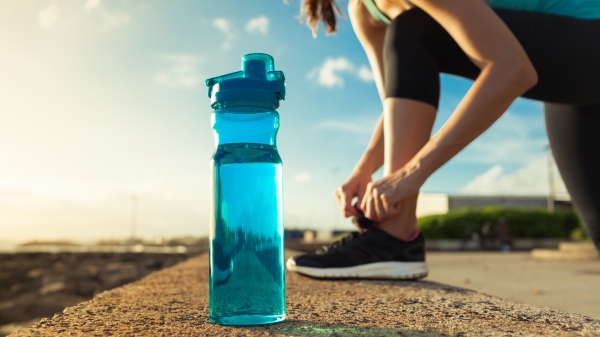
Tips for staying hydrated during Pat's Run and other outdoor activities
By Aidan Hansen Staying hydrated and listening to your body during outdoor exercise activities is crucial to one's health and…
